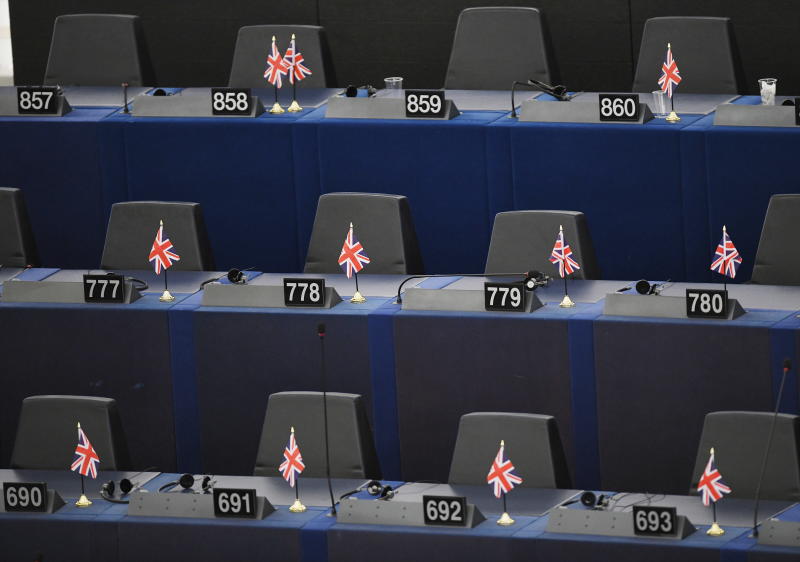European Parliament opens in shadow of unresolved Brexit
Sign up now: Get ST's newsletters delivered to your inbox

With Brexit delayed until as late as Oct 31, the deep political divisions in Britain were on full display in the eastern French city as 73 British MEPs arrived for Parliament.
PHOTO: EPA-EFE
Follow topic:
STRASBOURG (AFP) - The European Parliament opens a new session on Tuesday (July 2) with newly elected British MEPs still in their ranks and three Catalan separatists blocked by Madrid from taking their seats.
The 751-seat Parliament - based in Strasbourg, France - is more fragmented than ever after a vote in May that saw solid gains by the liberals and Greens as well as the far right and eurosceptics in the 751-seat chamber.
With Brexit delayed until as late as Oct 31, the deep political divisions in Britain were on full display in the eastern French city as 73 British MEPs arrived for Parliament.
Brexit firebrand Nigel Farage, a veteran of the EU chamber since 1999, led the charge warning of a "turquoise takeover" in the UK if the ruling Conservatives failed to deliver a divorce.
With 29 elected representatives, his Brexit Party - whose official colour is turquoise - is the national party with the largest delegation, just ahead of the Northern League of Italian Interior Minister Matteo Salvini with 28 seats.
Opposite Farage were the anti-Brexit Liberal Democrats, who also performed well in the EU elections and arrived in Strasbourg with bright yellow T-shirts emblazoned with "Bollocks to Brexit" and "Stop Brexit".
In theory, the new Parliament should have only 705 seats if Brexit were taken into account. When Brexit happens, 27 of the British seats are to be redistributed to other countries and another 46 set aside for future EU enlargements.
The opening session was also marked by a protest by Catalan separatists outside the Parliament in support of three of their own who are blocked by Madrid from taking office.
As MEP delegations arrived to the chamber, at least 4,000 demonstrators waved the Catalan flag in front of the European Parliament.
The blocked MEPs include Carles Puigdemont, the former head of the Catalan regional government who lives in Belgium to escape a Spanish arrest warrant after leading an attempted secession in 2017.
The others are his running mate Toni Comin, and the pro-independence activist Oriol Junqueras, who is in pre-trial detention in Spain.
Their seats will remain empty in a situation that "depends on the Spanish authorities, not the European Parliament", a Parliament spokesman told AFP.
Despite a Eurosceptic push, the pro-European bloc will keep a comfortable majority, with more than two-thirds of the votes after adding up those of the conservative EPP (182 MEPs), Social Democrats (154), Renew Europe centrists (108) and Greens (75).
As ever, the biggest establishment party force will be the CDU/CSU, the alliance between the formation of German Chancellor Angela Merkel and her Bavarian sister party, which will also have 29 deputies between them.
This delegation forms the backbone to the European People's Party, the Parliament's biggest political family, whose internal divisions have so far blocked progress on filling top EU posts.
The EPP and the S&D can no longer agree on major decisions alone and centrist and Green elected officials are determined to use this new opportunity to advance their political priorities.
But centrists allied to French President Emmanuel Macron also want to play a pivotal role, and deliver on the French leader's ambitions to shake up the EU.

